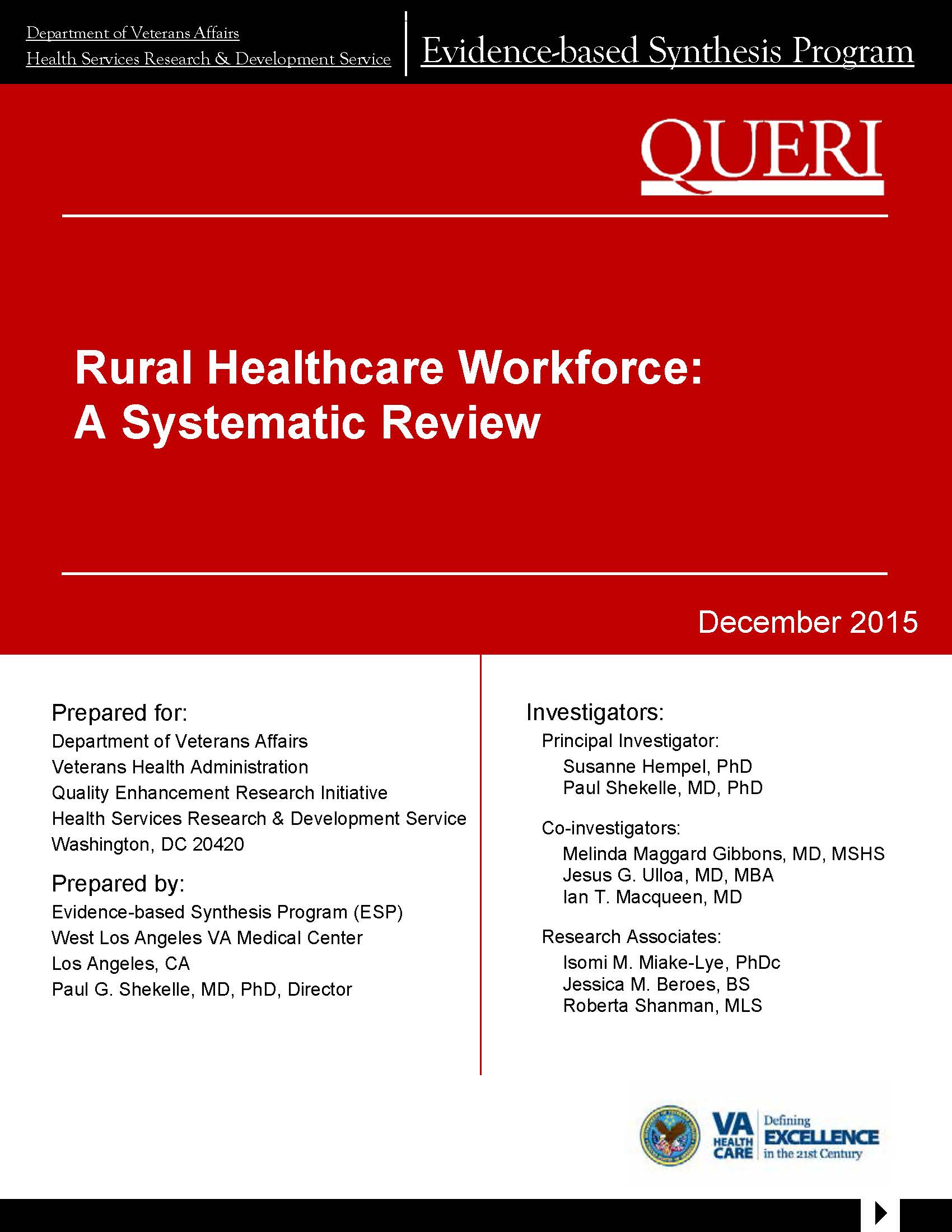
Principal Investigator:
Susanne Hempel, PhD;
Paul Shekelle, MD, PhD
Co-investigators:
Melinda Maggard Gibbons, MD, MSHS;
Jesus G. Ulloa, MD, MBA;
Ian T. Macqueen, MD
Download PDF: Complete Report, Executive Summary, Report, Appendices
Approximately 20 percent of the US total population lives in rural areas. Patients living in rural areas are often underserved with regard to healthcare access. The complexity of rural healthcare provision requires careful and systematic evaluation of individual contributing factors. The purpose of this review is to examine the current literature quantifying current and projected health provider need, to explore geographic provider choices, to synthesize evidence on interventions to increase rural provider recruitment and provider retention, and to document the efficacy of student training for current rural healthcare in the US.
This topic was developed in response to a nomination by the Office of Rural Health (ORH).
The Key Questions (KQ) are:
1. What are the current versus projected healthcare provider needs by numbers and disciplines in the next 20 years in rural areas?
2. What factors influence healthcare providers’ geographic choices for practice?
3. What interventions have been shown to increase rural healthcare provider recruitment?
4. What interventions have been shown to increase rural healthcare provider retention?
5. What is the efficacy of current rural-specific resident and healthcare profession student training and education efforts?